5 Simple Steps to Naturally Boosting Hair Volume
Are you tired of your limp and lifeless hair? Do you dream of having voluminous locks that turn heads wherever you go? Well, look no further because we’ve got the ultimate guide to help you naturally boost your hair volume! Say goodbye to flat strands and hello to fabulous bounce and body. In just 5 simple steps, we’ll show you how to reignite that fullness in your tresses, leaving you feeling confident, glamorous, and ready to conquer the world. So get ready to flip your hair with pride as we unveil the secrets behind achieving enviable volume – without breaking the bank or damaging your precious strands!
Introduction:
Many people struggle with thin hair and lack of volume, which can be frustrating and make them self-conscious. While there are many products on the market claiming to boost hair volume, these often come at a steep cost and may contain harmful chemicals. Fortunately, there are natural ways to increase the volume of your hair without breaking the bank or compromising your health.
In this blog post, we will discuss some simple yet effective steps that you can incorporate into your daily routine to achieve naturally voluminous hair. These methods involve using natural ingredients and making lifestyle changes that promote healthy and fuller-looking hair.
Our goal is not just to achieve temporary volume but also to improve the overall health of our scalp and strands for long-term benefits. So, let’s get started with these simple steps!
Understanding Hair Volume:
Before discussing how to boost hair volume naturally, it is essential to understand what causes thinning or flat hair in the first place. Our hair is made up of keratin protein, which gives it structure and strength. Each strand grows out of a follicle on our scalp, connected through blood vessels responsible for delivering nutrients.
Healthy scalp circulation is crucial for strong and voluminous hair growth since it ensures proper nutrient delivery to each follicle. Additionally, factors like genetics, hormonal imbalances, stress levels, and diet choices also play a significant role in determining our hair’s thickness and fullness.
Simple Steps for Naturally Boosting Hair Volume:
1. Nourish Your Scalp: As mentioned earlier, healthy scalp circulation is crucial for promoting thicker and fuller-looking locks. Massaging your scalp with oils like coconut oil or castor oil can help stimulate blood flow and nourish your follicles.
2. Use Natural Products: Avoid harsh chemical-laden shampoos and conditioners as they can strip off natural oils from your scalp leading to dryness and ultimately causing breakage-prone strands.
3. Incorporate Protein in Your Diet: Consuming enough protein is essential for healthy hair growth. Include protein-rich foods like eggs, nuts, beans, and fish in your diet to promote the production of keratin.
4. Switch Up Your Hairstyle: Sometimes a change in hairstyle can make a significant difference in how our hair appears. Experiment with different hairstyles or opt for layers to add dimension and create an illusion of volume.
Conclusion:
By making simple changes like massaging your scalp, using natural products, incorporating protein-rich foods in your diet, and switching up your hairstyle, you can achieve naturally fuller-looking locks without damaging side effects. Stay tuned for more tips on how to boost hair volume naturally!
– Importance of hair volume
Hair volume is an important aspect of our appearance, and it can greatly impact how we feel about ourselves. Many people desire thicker, fuller hair as it can enhance their overall look and boost confidence. However, factors such as genetics, aging, and certain medical conditions can cause hair to become thin and lack volume. Furthermore, excessive use of styling products or heat treatments can also contribute to hair loss and decrease in volume.
There are several reasons why having sufficient hair volume is crucial for achieving healthy-looking hair. One of the main benefits is that it makes the hair appear more luscious and voluminous, adding texture and movement to hairstyles. This means that even simple hairstyles like ponytails or buns will have a more dynamic look with voluminous hair. Additionally, ample hair volume also adds a youthful appearance to one’s overall look.
Apart from aesthetic reasons, having good hair volume is also important for maintaining the health of your scalp and follicles. Each strand of hair has its own sebaceous gland which provides nourishment to the roots by secreting natural oils. Having thick hair allows these oils to spread evenly throughout the scalp, keeping it moisturized and preventing dryness or irritation.
Furthermore, thinning hair can lead to self-consciousness in individuals who may feel embarrassed about their appearance. It may affect their social life as they may avoid activities such as swimming or going out in windy weather due to concerns about their thinning hair becoming noticeable. Low self-esteem caused by inadequate hair volume can also have a significant impact on an individual’s mental well-being.
Aside from these personal impacts, healthy levels of volume in the mane are linked to good overall health too. People with shiny voluminous locks often follow a well-balanced diet full of nutrients that support not just stronger but healthier-looking strands too!
Having adequate hair volume plays a vital role in not only enhancing our physical appearance but also our psychological well-being. Therefore, it is essential to take care of our hair and pay attention to its volume. In the upcoming sections, we will discuss some simple yet effective steps that can naturally boost hair volume and help you achieve fuller and healthier-looking locks.
– Common causes of hair loss and thinning
Hair loss and thinning are common hair concerns that affect millions of people worldwide. While some degree of hair loss is a natural part of the hair growth cycle, excessive or premature shedding can be distressing and have a significant impact on one’s self-esteem. In this section, we will discuss the most common causes of hair loss and thinning.
1. Genetics: The most common cause of hair loss in both men and women is genetics. Androgenetic alopecia, also known as male or female pattern baldness, is an inherited condition that affects about 50 million men and 30 million women in the United States alone. This type of hair loss usually starts with a receding hairline for men, while women experience overall thinning all over their scalp.
2. Hormonal changes: Hormonal imbalances can have a significant impact on our overall health, including our hair growth cycle. For example, during pregnancy, high levels of estrogen prolong the growing phase of the hair follicles, resulting in thicker and fuller locks. However, after giving birth or entering menopause when hormonal levels shift dramatically, many women experience postpartum or age-related shedding.
3. Nutritional deficiencies: Our diet plays a crucial role in maintaining healthy hair. A deficiency in essential nutrients such as protein, iron, zinc, biotin (vitamin B7), and vitamins A and D can lead to weak and brittle strands that are more prone to breakage.
4. Stress: Chronic stress not only affects our mental well-being but also has physical consequences such as increased inflammation in the body and cortisol production – also known as the “stress hormone.” Elevated cortisol levels can disrupt the natural hair growth cycle by pushing more hairs into their resting phase prematurely.
5. Medical conditions/treatments: Certain medical conditions such as thyroid disorders, autoimmune diseases like alopecia areata, or scalp infections like ringworm can contribute to excessive shedding. Chemotherapy, radiation therapy, and some medications like blood thinners and antidepressants can also cause hair loss as a side effect.
Various factors can contribute to hair loss and thinning. While some of these causes are beyond our control, adopting healthy lifestyle habits, managing stress levels, and ensuring proper nutrition can help prevent or slow down the progression of hair loss. In the following sections, we will explore natural ways to boost hair volume by addressing these underlying causes.
Step 1: Nourish your body from the inside
To achieve and maintain healthy, voluminous hair, it is important to nourish your body from the inside. This means focusing on nourishing your body with essential vitamins, minerals, and nutrients that promote hair growth and strength. By making simple changes in your diet and lifestyle, you can naturally boost your hair volume without relying on harsh chemicals or expensive treatments.
One of the key nutrients for promoting luscious locks is protein. Hair is made up of a protein called keratin, so ensuring that you have enough protein in your diet is crucial for healthy hair growth. Foods rich in protein include eggs, lean meats such as chicken and fish, beans and legumes, nuts, and seeds. Incorporating these foods into your meals can provide your body with the necessary building blocks for strong and voluminous hair.
In addition to protein, other important vitamins and minerals for promoting healthy hair are vitamin A, B vitamins (specifically Biotin), iron, and zinc. Vitamin A helps regulate the production of an oily substance called sebum which moisturizes the scalp and keeps hair healthy. Foods rich in vitamin A include sweet potatoes, carrots, spinach, pumpkin seeds, and apricots.
Biotin is a water-soluble B vitamin that plays a vital role in maintaining strong and thick hair. It helps produce amino acids that build proteins needed for hair growth. Good sources of biotin include eggs (particularly egg yolks), avocados, almonds, salmon, and whole grains.
Iron deficiency has been linked to thinning hair so ensuring adequate intake of this mineral can help prevent this issue. Iron-rich foods include red meat, pulses such as lentils or chickpeas, and leafy green vegetables like spinach or kale.
Zinc also plays an important role in maintaining a healthy scalp which promotes strong follicles. By incorporating zinc-rich foods like seafood (especially oysters), fortified cereals, and poultry into your diet, you can maintain a healthy scalp and boost hair volume.
It is also important to stay hydrated by drinking enough water throughout the day. Dehydration can lead to dry and brittle hair which can result in hair loss. Aim for at least 8 glasses of water per day to keep your body and hair hydrated.
By nourishing your body with these essential nutrients, you are giving your hair the foundation it needs to grow strong, thick, and voluminous. Along with a balanced diet, incorporating regular exercise into your lifestyle can also improve circulation and promote healthy hair growth from within. These simple steps will not only benefit your overall health but also give you fuller and more voluminous locks to show off.
– Foods to eat for hair health
Hair health is directly linked to the type of food we consume. Our diet plays a crucial role in determining the strength, shine, and volume of our hair. In this section, we will discuss some essential foods that promote hair growth and keep your locks looking gorgeous.
1. Lean proteins – Hair is made up of a protein called keratin, so it makes sense to include ample amounts of lean protein in your diet. Fish, poultry, eggs, and low-fat dairy products like milk and yogurt are excellent sources of quality protein which can help promote healthy hair growth.
2. Leafy greens – Dark leafy greens like spinach and kale are rich in iron and other nutrients that are essential for maintaining healthy hair. Iron deficiency has been linked to hair loss, so incorporating these greens into your meals can help prevent hair thinning.
3. Nuts and seeds – Almonds, walnuts, pumpkin seeds, and flaxseeds are all packed with vitamins and minerals such as biotin which promotes strong and lustrous locks. These snacks make great additions to salads or can be eaten as a quick snack on their own.
4. Avocadoes – This creamy fruit is loaded with healthy fats that nourish the scalp and promote shiny hair. It also contains high levels of vitamin E which boosts blood circulation to the scalp ensuring adequate oxygen supply to the follicles.
5. Berries – Blueberries, strawberries, and blackberries are all high in antioxidants that protect hair from damage caused by free radicals. They also contain vitamin C which aids in collagen production necessary for strong strands.
6. Fatty Fish- Salmon, tuna, mackerel, sardines, etc.. Fatty fish like salmon, tuna, and mackerel contain high levels of omega-3 fatty acids which nourish both the scalp and the hair shafts. These fatty acids also have anti-inflammatory properties preventing conditions like dandruff, a common cause of limp, hair.
7. Whole grains – Whole grains are a rich source of biotin, iron, and zinc all essential for healthy hair growth. Oats, brown rice, and quinoa are some great options to include in your diet.
8. Green tea – This refreshing beverage is packed with antioxidants that promote hair growth and reduce hair loss. Regular consumption of green tea also helps in managing stress which can cause hair fall.
9. Carrots – These bright orange veggies are loaded with beta-carotene, an antioxidant that promotes a healthy scalp and encourages the production of sebum which keeps the scalp moisturized.
10. Dairy- Dairy products like milk, yogurt, and cheese provide the calcium and protein necessary for strong, healthy locks. Additionally, they contain bioavailable vitamin D, a nutrient linked to preventing hair loss.
By incorporating these foods into your regular meals, you can ensure that your body gets all the necessary nutrients to support healthy hair growth from within. Remember, food alone cannot guarantee luscious locks; it needs to be coupled with proper hydration and good hair care practices for the best
– Supplements for hair growth
1. – Supplements for Hair Growth
In addition to following a healthy hair care routine, incorporating supplements can also be an effective way to boost hair volume and growth. These supplements work by providing essential nutrients and vitamins that may be lacking in your diet, leading to weak or thinning hair.
Here are some key supplements that have been found to support hair growth and volume:
a) Biotin: Also known as vitamin B7, biotin is a popular supplement for promoting hair growth. It plays a crucial role in the production of keratin, which is the main structural component of our hair. A biotin deficiency has been linked to hair loss and adding a biotin supplement can help improve overall hair health.
b) Vitamin D: Low levels of vitamin D have been associated with issues like alopecia (hair loss). Studies show that taking a vitamin D supplement can lead to an increase in the number of hairs on the scalp and also improved thickness.
c) Iron: Iron deficiency is a common cause of hair loss, especially in women. Taking iron supplements can help stimulate new hair follicle growth and prevent further shedding.
d) Omega-3 Fatty Acids: These fatty acids are essential for maintaining healthy scalp tissue, which is crucial for strong and thick hair. They also have anti-inflammatory properties that promote scalp health and may even improve circulation to the scalp, ensuring proper delivery of nutrients for optimal hair growth.
e) Collagen: As we age, our bodies produce less collagen, which is a protein responsible for maintaining strong and healthy skin, nails, and hair. Supplementing with collagen can not only improve overall skin appearance but also promote stronger and thicker locks.
f) Multivitamins: Opting for a daily multivitamin that contains all essential vitamins such as A,C,E along with important minerals like zinc can provide your body with all the necessary building blocks needed for healthy hair growth.
When choosing supplements, it is important to consult with a healthcare professional and determine which ones are best for you based on factors such as your current health status and any medications you may be taking. Additionally, beware of claims made by companies promoting “miracle” hair growth supplements. Always do thorough research and read reviews before trying out new products.
Adding these key supplements to your daily routine can help support healthy hair growth from within. Remember that supplements are not a magic solution and must be combined with other healthy habits like a balanced diet and proper hair care routine for optimal results.
Step 2: Scalp Care and Stimulation
To achieve thick, voluminous hair, it is crucial to pay attention to your scalp. This is the foundation from which healthy hair grows, so keeping it nourished and stimulated is key.
When it comes to scalp care, one of the most important things you can do is keep it clean. Build-up from products, sweat, and oils can clog pores and inhibit hair growth. Make sure to wash your hair regularly with a gentle shampoo that suits your hair type.
Additionally, incorporating a scalp massage into your routine can greatly promote volume. Not only does this stimulate blood flow and help distribute natural oils throughout the scalp, but it also relaxes tense muscles in the head and neck region. You can use your fingers or a specialized scalp massager while washing or apply oil such as coconut or olive oil before massaging for added nourishment.
Another way to boost volume through scalp care is by using essential oils. Peppermint oil has been found to increase the thickness and density of hair when applied topically due to its ability to improve circulation and stimulate follicles. Rosemary oil has also been shown to have similar effects on promoting hair growth. Be sure to dilute the oils properly before applying them directly onto the scalp.
Exfoliating the scalp is often an overlooked step in achieving voluminous locks. By removing dead skin cells and build-up from the surface of the scalp, this process allows for better absorption of nutrients and encourages healthier root growth. You can use a homemade scrub made from ingredients such as sea salt, sugar, or baking soda mixed with coconut oil or apple cider vinegar.
In addition to cleaning and stimulating your scalp externally, maintaining a balanced diet plays an important role in overall hair health as well as increasing volume. Eating foods rich in iron, protein, biotin (found in eggs), zinc (found in nuts), and vitamins A, C, and E can help support hair growth and maintain strong roots.
Taking care of your scalp is crucial for promoting healthy hair growth and volume. By cleaning regularly, massaging with essential oils, exfoliating, and fueling your body with the right nutrients, you will be on your way to achieving fuller, more voluminous hair. Remember to be consistent in your scalp care routine and have patience as it may take some time to see results.
– Essential oils for scalp health
Scalp health is essential for maintaining healthy and voluminous hair. A dry and irritated scalp can lead to hair thinning, breakage, and lack of volume. Fortunately, there are natural remedies that can help improve scalp health and boost hair volume – essential oils.
Essential oils are concentrated plant extracts known for their numerous therapeutic benefits. They are packed with vitamins, antioxidants, and anti-inflammatory properties that can promote scalp health and stimulate hair growth. Here are the top essential oils that you should consider incorporating into your hair care routine:
1. Tea Tree Oil:
Tea tree oil has antifungal properties that can effectively combat dandruff, one of the main causes of a dry and itchy scalp. It also helps regulate oil production on the scalp, promoting a balanced environment for hair growth. Its antibacterial properties also make it beneficial in treating any bacterial infections on the scalp.
2. Peppermint Oil:
Peppermint oil has a cooling sensation on the skin when applied topically, providing relief from an itchy or inflamed scalp. It also helps to increase blood flow to the area, which promotes healthy circulation and stimulates hair follicles for improved hair growth.
3. Rosemary Oil:
Rosemary oil is known for its ability to nourish and strengthen hair follicles while improving cellular regeneration in the scalp. This results in thicker strands of hair with more volume.
4. Patchouli Oil:
Patchouli oil has soothing effects on the skin making it helpful for those who suffer from a dry or flaky scalp caused by conditions such as psoriasis or eczema. It also helps reduce inflammation, irritation, or redness on the scalp while increasing hydration levels.
5. Lavender Oil:
Lavender oil is known for its calming effects on both body and mind – but it’s not just limited to relaxation! The anti-inflammatory properties found in lavender make it useful in reducing scalp inflammation, promoting hair growth, and keeping hair moisturized.
6. Cedarwood Oil:
Cedarwood oil helps improve blood circulation to the scalp, which can contribute to healthier hair follicles and increased hair growth. It also has antifungal properties that can combat dandruff, leaving your scalp clean and healthy.
To use these essential oils for scalp health, mix a few drops into your favorite carrier oil such as coconut or jojoba oil before massaging it onto your scalp. You can also add a few drops into your shampoo or conditioner for an extra boost of nourishment and stimulation for your hair strands.
Incorporating these essential oils into your hair care routine can help improve the health of your scalp and promote natural volume in your tresses. However, it’s important to note that everyone’s scalp is different, so it may take some trial and error to find the perfect combination of essential oils that works best for you. Be patient and consistent with the use of these oils for maximum results.
– Massage techniques to promote hair growth
1. – Massage Techniques to Promote Hair Growth
Massage has been used for centuries as a means of promoting overall health and well-being, but did you know that specific massage techniques can also help stimulate hair growth? By improving blood circulation and stimulating the scalp, massage can promote the delivery of vital nutrients to the hair follicles, resulting in stronger and healthier hair. In this section, we will discuss some effective massage techniques that can help boost hair volume naturally.
1) Scalp Massage with Essential Oils:
Essential oils have long been used for their therapeutic benefits and are known to promote healthy hair growth. When combined with scalp massage, these oils can work wonders in improving blood flow and strengthening the roots of your hair. You can choose from a variety of essential oils such as rosemary, lavender, peppermint, or coconut oil depending on your preferences. Simply warm up a few drops of your chosen oil between your palms and gently massage it into your scalp using circular motions for 5-10 minutes before shampooing.
2) Deep Tissue Massage:
A deep tissue massage not only helps reduce stress and tension but also works wonders in enhancing circulation to the scalp. Using firm pressure with your fingertips or a massaging tool like a head massager (also known as ‘hair pik’), start at the nape of your neck and work your way towards the crown of your head with gentle strokes. Repeat this motion several times focusing on different areas of your scalp each time.
3) Acupressure Massage:
According to traditional Chinese medicine, acupressure points correspond to different organs in our body including our scalp. Applying pressure on specific points is believed to improve blood flow which stimulates hair growth. One such point is located at the base of our skull where it meets our neck called the ‘Gates of Consciousness’. To activate this point, use gentle circular motions with medium pressure for about 3-5 minutes.
4) Inversion Massage:
Inverting the body during a scalp massage can also increase the flow of blood to our scalp. To do this, simply lay down on your bed with your head hanging off the edge and gently massage your scalp using firm pressure for about 5-10 minutes. This technique allows more nutrients to reach the hair follicles resulting in stronger and healthier hair growth.
Incorporating regular massages into your hair care routine can have numerous benefits for promoting healthy hair growth. Along with these techniques, remember to maintain a balanced diet and avoid excessive heat styling for best results. With consistent effort, you will soon notice an improvement in your hair volume and overall health.
Step 3: Use the right products
We all want luscious, voluminous hair that looks effortlessly full and healthy. While genetics play a major role in our hair volume, the products we use also contribute significantly. In this step, we will discuss the importance of choosing the right products to naturally boost your hair volume.
1. Shampoo and Conditioner:
The first step in any hair care routine is using the right shampoo and conditioner. Look for volumizing formulas that are free from harsh chemicals like sulfates and parabens which can weigh down your hair. Additionally, opt for lightweight formulas that add moisture without leaving behind residue or excess oil on your scalp.
2. Hair Masks:
Using a hair mask once a week can do wonders for boosting volume in your locks. Look for masks specifically designed for adding volume to thin or fine hair. These masks often contain ingredients like biotin, keratin, and collagen which help strengthen and thicken strands of hair.
3. Root Lifters:
If you have flat roots, using a root lifter spray or mousse can instantly add volume to your hairstyle. These products work by lifting the roots of your hair at the crown, creating movement and body throughout your tresses.
4. Texturizing Spray:
For those with fine or straight hair, texturizing sprays can be a game-changer when it comes to adding volume and texture to your locks. These sprays usually contain sea salt or other minerals that create a gritty texture in the hair, making it easier to hold styling techniques such as teasing or backcombing.
5. Dry Shampoo:
Dry shampoo is another must-have product for anyone looking to boost their natural hair volume. Not only does it absorb excess oil at the scalp (which can weigh down fine strands), but it also adds texture and grip to the roots of your hair for added lift and body.
6. Wax/Pomade:
Using wax or pomade on the ends of your hair can help create thickness and fullness, especially for those with shorter hairstyles. These styling products add weight to the hair, making it easier to manipulate and create a voluminous look.
Using the right products is essential for naturally boosting hair volume. Look for lightweight formulas, masks with nourishing ingredients, and texturizing sprays or dry shampoo to add movement and body to your tresses. Additionally, don’t be afraid to experiment with different styling techniques such as root lifting or using wax/pomade for added thickness. With these tips in mind and the right products in your repertoire, you’ll be well on your way to achieving bouncy, voluminous locks that will turn heads wherever you go!
– Shampoos and conditioners for boosting
1. – Shampoos and conditioners for boosting
When it comes to achieving voluminous hair, the products we use play a crucial role. Shampoos and conditioners specifically designed for boosting hair volume can make a significant difference in the overall appearance of our locks. These products work by nourishing and strengthening the hair, creating a fuller and thicker look.
1a. Understanding your hair type:
Before exploring which shampoos and conditioners are best for boosting volume, it is essential to understand your hair type. Different types of hair have different needs, and using products that are not suitable for your hair type can do more harm than good. For instance, if you have fine or thin hair, using heavy moisturizing shampoos can weigh down your strands and make them appear limp instead of adding volume.
1b. Ingredients to look out for:
When choosing shampoos and conditioners for boosting volume, there are certain key ingredients to look out for. These include proteins such as keratin or rice protein that help strengthen the hair shaft while adding body and fullness to the strands. Additionally, Biotin is known to improve the thickness of individual hairs while promoting healthy growth.
Apart from proteins, products with natural oils like argan oil or coconut oil can help keep the scalp hydrated without weighing down the roots. Look out for shampoos with ingredients like rosemary, peppermint, or tea tree oil that stimulate blood flow to the scalp, which in turn promotes healthier follicles leading to voluminous locks.
1c. Choosing sulfate-free options:
Sulfates are commonly found in many traditional shampoos due to their ability to create lather quickly; however, these chemicals can strip away natural oils from our scalp leading to dryness and damage in some cases. Opting for sulfate-free shampoos not only prevents stripping off beneficial oils but also helps retain moisture on both scalp and strands, leading to healthier and bouncy hair.
1d. How often to use:
While using volumizing shampoos and conditioners can make a visible difference in the volume of our hair, it is essential to not overdo it. It is recommended to wash your hair every other day or twice a week, depending on your hair type, to prevent stripping away natural oils. Over-washing can lead to an imbalance in oil production on the scalp, resulting in greasy roots and flat-looking locks.
Choosing shampoos and conditioners with suitable ingredients for your hair type and incorporating them into a proper hair care routine can help significantly boost the volume of your tresses naturally. Remember to also be mindful of how often you wash your hair and choose sulfate-free options for optimal results. With these simple steps, achieving luscious locks with added volume has never been easier!

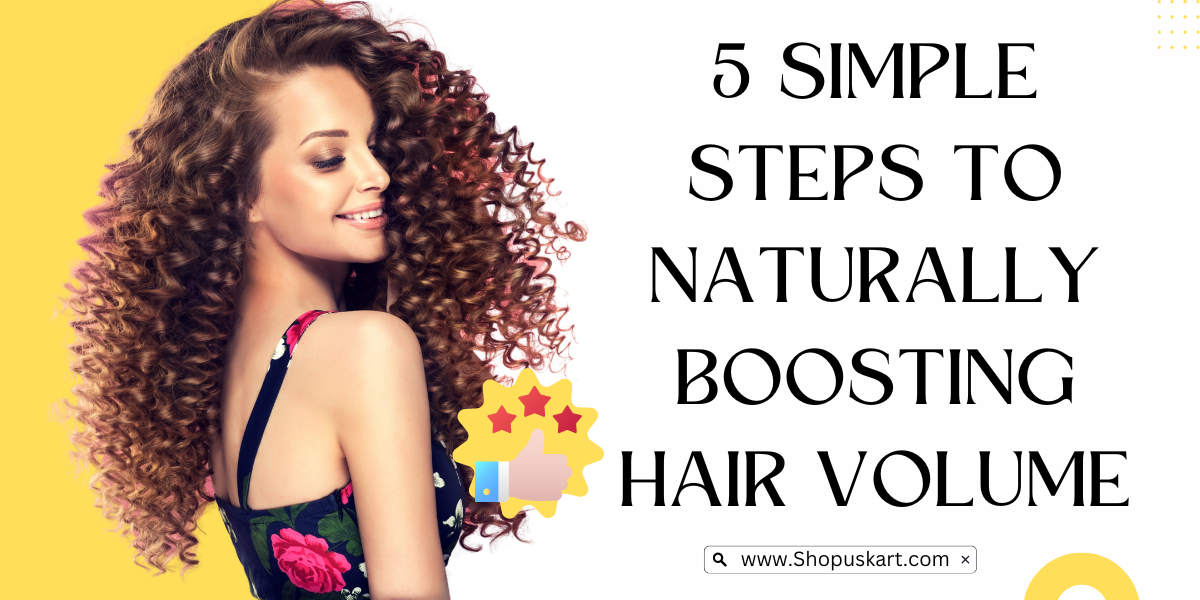
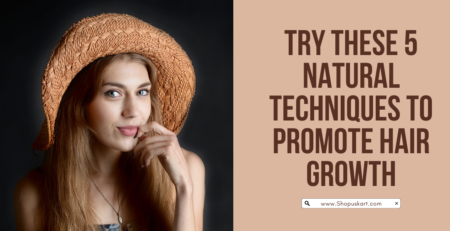
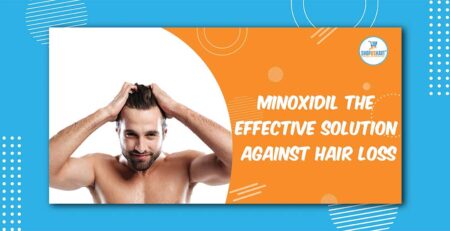
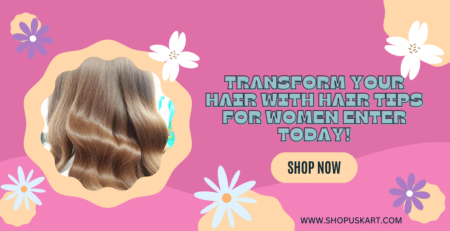
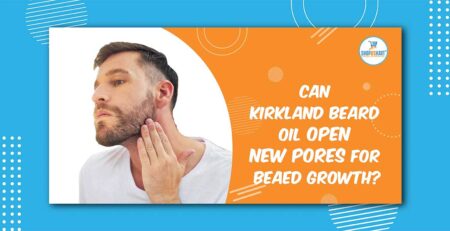
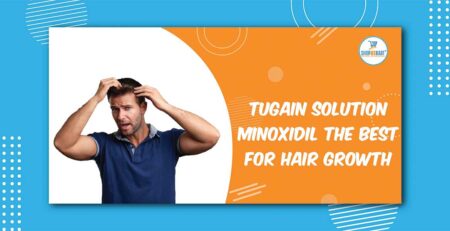
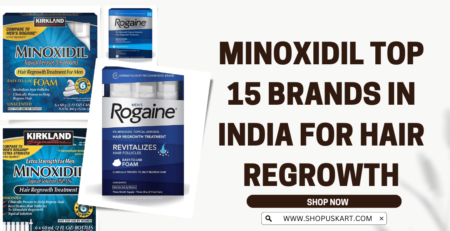
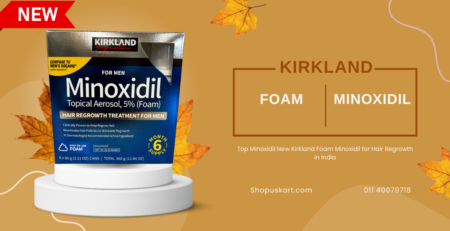
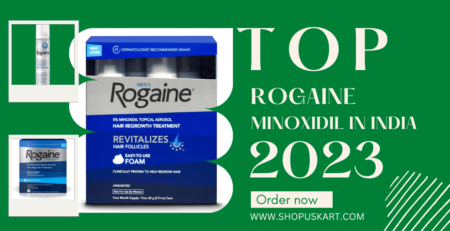

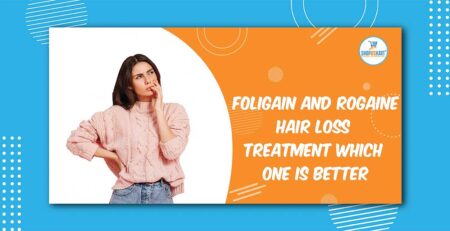
Leave a Reply